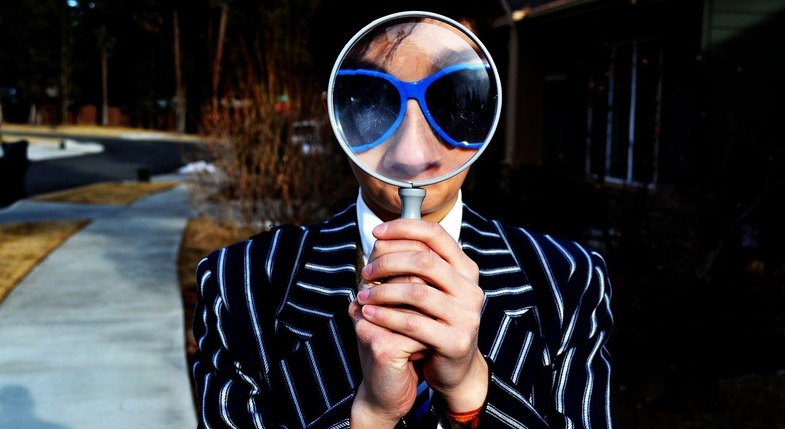
Every year on March 20, "World Storytelling Day" celebrates the art of storytelling. So, here is a story for you today.
"Seeing Things"
Gary stepped outside and knew at once that it was going to be one of those terrible days.
Everything was dark and gloomy, as if a thunderstorm was only moments away. But it was strange – the weatherman had said the day would be sunny.
Gary continued on to his favorite coffee shop. Inside the coffee shop, the lights were dim, as if some bulbs had burned out. He thought, “What kind of restaurant doesn’t change the light bulbs when they go out?”
Gary sat down and looked at the menu, but the dim lighting was making him more and more depressed. When the waitress came by to take his order, Gary ordered his food, but he stopped her just as she started to walk back to the kitchen.
“Why don’t you guys fix some of these light bulbs? It’s so dark in here. Do you think your customers like to eat in the dark?” Gary, whose mood had gotten progressively worse since he left the house, spoke angrily and a little too loudly.
“But sir,” the waitress said, looking confused, “There are no bulbs burned out. You’re wearing sunglasses.”
Gary pulled off his glasses. It was true! He had grabbed the wrong glasses out of his dresser drawer. He apologized to her and made a mental note to leave her a big tip.
MORAL: When searching for the source of your unhappiness, look first to yourself.
Some Reflections on "Seeing Things"
What an eye-opener! (pun intended). The fault we find in the world around us can so often be traced back to what’s inside ourselves. It is easy to project our problems onto others. But taking ownership of the problems could help us actually solve them!
How often do we try to change a spouse or a roommate's behaviors, forgetting that we can’t change others! We can encourage and persuade, but we can’t make people do anything they don’t decide for themselves to do.
Recognizing this, we ought to be able to see how counterproductive it is to get irritated by things going on around us. We automatically think those problems are someone else’s responsibility when we already have the power to stop the irritation!
Like Gary in the story, when we think problems are someone else’s, we spend a lot of time grumbling and complaining. We walk around in a dark mood, making things miserable for ourselves and those around us.
Now contrast that unpleasant picture with a person who takes responsibility for his or her own unhappiness. When things aren’t going well, he’ll stop and think about his own attitude and actions. A wise person would ask, “What is my perspective on this and in what way am I contributing to the problem?”
Blaming others is a recipe for frustration. And it keeps us from identifying the root of problems. Taking responsibility and examining our weaknesses, mistakes or contributions to the problem allow us to take positive action toward solutions.
Sometimes what we can do is a lot, and sometimes it’s not so much. But taking ownership and moving forward will make us more productive and peaceful than simply blaming others and waiting for them to change.
And ultimately, we have the power to choose our response to each situation and event we encounter.
Self-reflection empowers us to take off the sunglasses and put on the clear lenses.
Questions for Self-reflection:
1. Are there issues in my life where I’m blaming others for things not going well?
2. What am I doing that could be contributing to the problem?
3. Is my perspective or belief system causing my own unhappiness?
Congratulations @serving! You have completed the following achievement on the Hive blockchain and have been rewarded with new badge(s):
You can view your badges on your board and compare yourself to others in the Ranking
If you no longer want to receive notifications, reply to this comment with the word
STOPCheck out the last post from @hivebuzz:
Support the HiveBuzz project. Vote for our proposal!